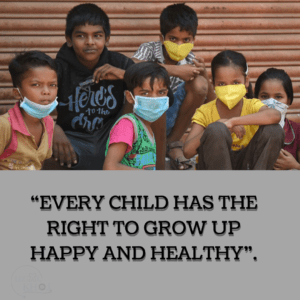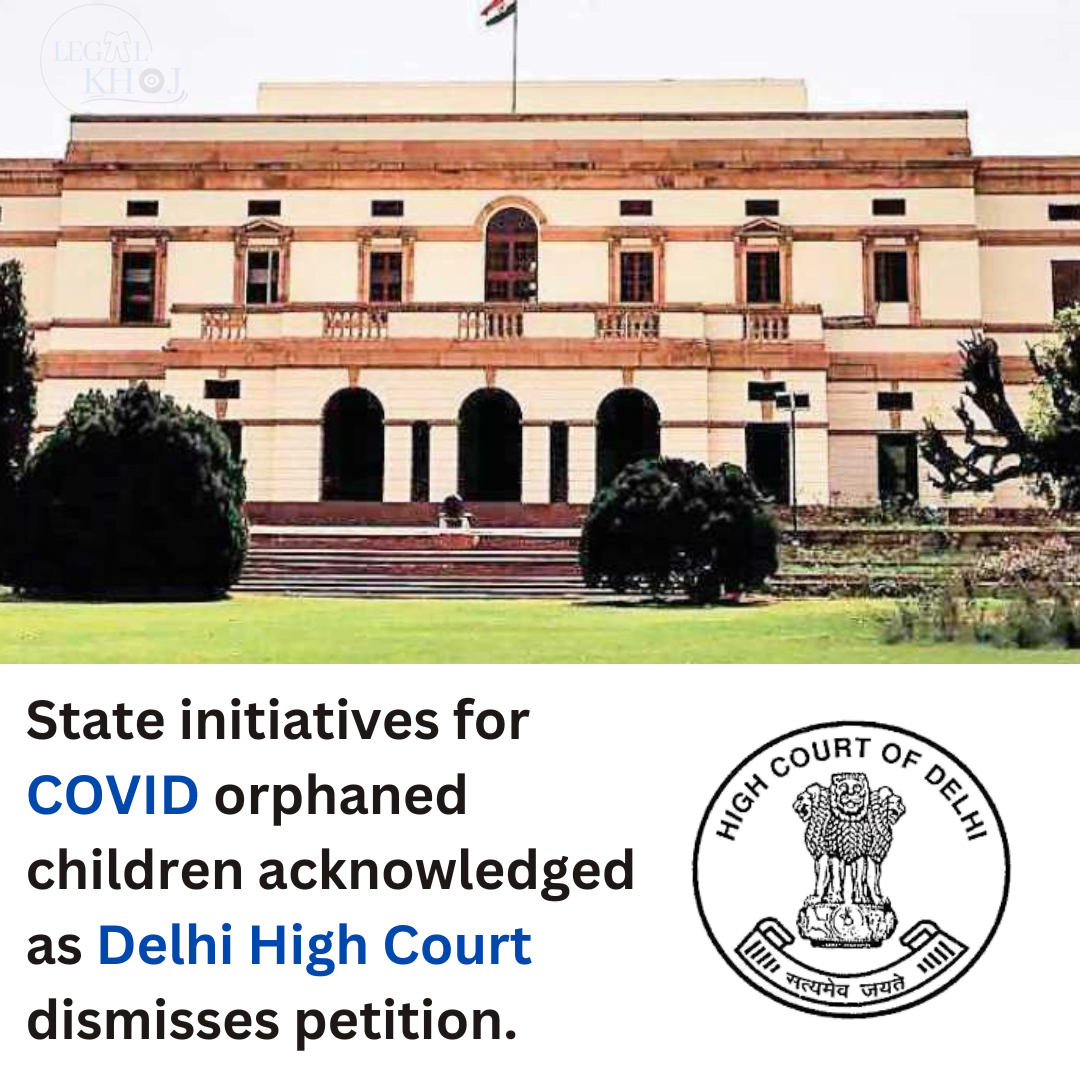Delhi High Court Dismisses Petition
In a Public Interest Litigation (PIL) filed by a concerned petitioner urging the Union of India to safeguard the interests of children orphaned during the COVID-19 pandemic and provide compensation to families who lost members due to a lack of access to healthcare, the Delhi High Court, presided over by Chief Justice Satish Chandra Sharma and Justice Sanjeev Narula, declined to issue new directives after reviewing the affidavits submitted by the State. The Delhi High Court found that various stakeholders had undertaken multiple measures in alignment with the petitioner’s cause.
Sanjeev Narula, declined to issue new directives after reviewing the affidavits submitted by the State. The Delhi High Court found that various stakeholders had undertaken multiple measures in alignment with the petitioner’s cause.
The Supreme Court, in an order dated 3rd April 2020, had established guidelines related to children in conflict with the law and those residing in foster/kinship homes, outlining necessary care and attention. Subsequently, on 15th July 2020, the Supreme Court issued broader directives regarding the education of children in Child-Care Institutions (CCIs), contact with released children, case reviews, and institutionalization/re-admission procedures, considering the provisions of the Juvenile Justice (Care and Protection of Children) Act, 2015, and other COVID-19 related measures. These guidelines were reinforced by additional directives on 21st January 2021, addressing the education of children in CCIs and those reunited with parents, guardians, or foster families. Furthermore, on 7th June 2021, the Supreme Court emphasized the uninterrupted education of affected children, urging State Governments to instruct private educational institutions to offer a 6-month grace period to these children. The Delhi High Court, while recognizing existing welfare measures, underscored the need for enhanced implementation, especially for orphaned children. Consequently, the Supreme Court issued specific directions to stakeholders, emphasizing the identification and support of children orphaned due to COVID-19.
Delhi High Court Approves Efforts
The Delhi High Court and Supreme Court, through an order on 27th June 2021, directed State Governments to ensure the continued education of orphaned children in the same schools for the Academic Year 2021-2022. Additionally, steps were mandated for the free admission of affected children under the Right of Children to Free and Compulsory Education Act, of 2009.
Respondents 4 and 5, as per their affidavit, informed the court about the implementation of the “Mukhyamantari COVID-19 Pariwar Sahayata Yojana,” providing financial assistance to families of those who succumbed to COVID-19. This scheme granted monthly financial aid of INR 2,500 and a one-time ex-gratia payment of INR 50,000 to 2,130 families. Respondent 2, in their affidavit, outlined various initiatives, including the establishment of SAMVAD, a national initiative for child protection and mental health supported by the Ministry of Women and Child Development, Government of India.
Advisories were also issued, ensuring the operation of essential services like one-stop centers, women help lines, and designated officials to assist women and children affected by violence during the pandemic.
The Delhi High Court scrutinized affidavits from all stakeholders, revealing that between April 2020 and April 2022, 7,006 children, including 143 who lost one or both parents due to COVID-19, were identified as needing care and protection. Welfare measures, such as the LADLI Scheme, Delhi Pension Scheme for Women in Distress, and National Family Benefit Scheme, were extended to these children. Additionally, the Department of Women and Child Development, in collaboration with the Department of Education, facilitated their education. Ration kits and take-home rations were also provided to support these vulnerable children.
Judgement of the Dismisses Petition
The extensive efforts made by stakeholders, The Delhi High Court decided against issuing new orders. It recognized the substantial progress achieved and the collaborative measures taken by the relevant authorities to address the petitioner’s concerns regarding orphaned children and families affected by COVID-19.
Delhi High Court Final Decision
The verdict from the Delhi High Court serves as a poignant reminder of the imperative need for sustained cooperation between the State and a myriad of institutions to safeguard and enhance the welfare and protection of vulnerable children, particularly in the face of the formidable challenges that persist in these times. This ruling resounds with the acknowledgment that the shared responsibility of the government and various entities is pivotal in assuring the well-being and security of children who are in vulnerable situations.
Amidst the complex and ever-evolving landscape of the current era, it is evident that the collaborative efforts between the State and numerous stakeholders, including non-governmental organizations, social services, and educational institutions, play a pivotal role in shaping the future of these children. It underscores the recognition that isolated efforts may fall short in meeting the multifaceted needs of at-risk youth.
This decision signifies that children’s protection is not solely the responsibility of the State but rather a collective endeavor that necessitates the joint commitment of various actors within society. By emphasizing the significance of ongoing collaboration, The Delhi High Court has reaffirmed the duty to provide a nurturing and protective environment for vulnerable children, thereby contributing to their overall well-being and fostering a more equitable and secure future for them.
must read:-
Rajasthan High Court categorizes Kurkure and Cheetos as ‘namkeen’, not ‘snacks’.









Leave a Reply